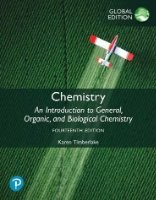Textbook Question
Complete the following statements:
a. The atomic number gives the number of _____ in the nucleus.
24
views

 Verified step by step guidance
Verified step by step guidance


Complete the following statements:
a. The atomic number gives the number of _____ in the nucleus.
Complete the following statements:
b. In an atom, the number of electrons is equal to the number of _____.
Complete the following statements:
c. Sodium and potassium are examples of elements called _____.
Complete the following statements:
b. The elements in Group 7A (17) are called the _____.
Complete the following statements:
c. Elements that are shiny and conduct heat are called _____.
Indicate if each of the following statements is true or false:
c. The atomic mass unit is based on a carbon atom with six protons and six neutrons.